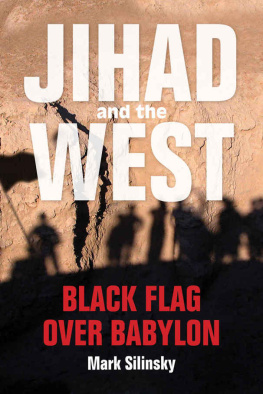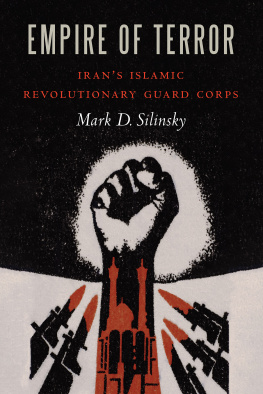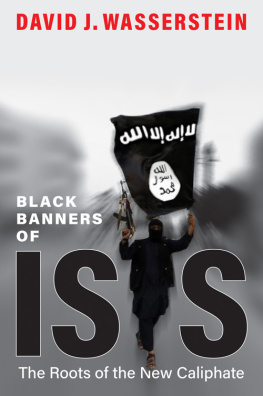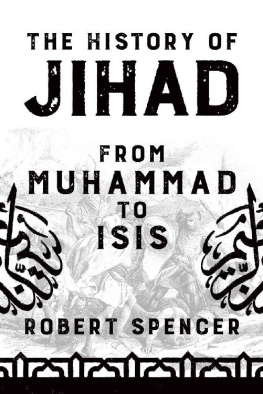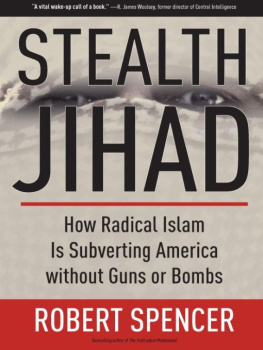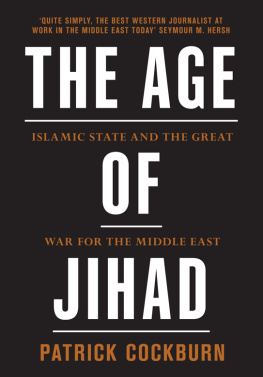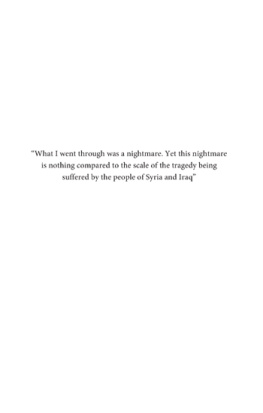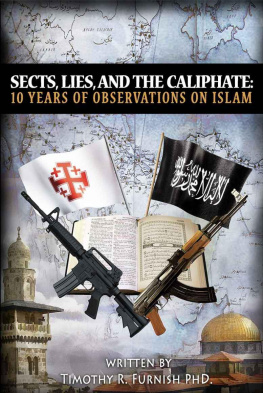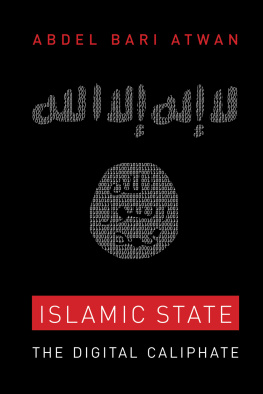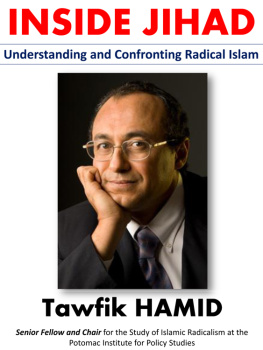JIHAD
and the
WEST
JIHAD
and the
WEST
BLACK FLAG OVER BABYLON

Mark Silinsky
INDIANA UNIVERSITY PRESS
Bloomington and Indianapolis
This book is a publication of
Indiana University Press
Office of Scholarly Publishing
Herman B Wells Library 350
1320 East 10th Street
Bloomington, Indiana 47405 USA
iupress.indiana.edu
2016 by Mark Silinsky
All rights reserved
No part of this book may be reproduced or utilized in any form or by any means, electronic or mechanical, including photocopying and recording, or by any information storage and retrieval system, without permission in writing from the publisher. The Association of American University Presses Resolution on Permissions constitutes the only exception to this prohibition.
The paper used in this publication meets the minimum requirements of the American National Standard for Information SciencesPermanence of Paper for Printed Library Materials, ANSI Z39.481992.
Manufactured in the United States of America
Cataloging information is available from the Library of Congress.
ISBN 978-0-253-02701-6 (cloth)
ISBN 978-0-253-02720-7 (ebook)
ISBN 978-0-253-02712-2 (paperback)
1 2 3 4 5 21 20 19 18 17 16
To all those murdered by the Caliphate.
May you rest in peace.
CONTENTS

FOREWORD
SEBASTIAN GORKA
THE WORD JIHAD IS MISUNDERSTOOD AND MISREPRESENTED. It is a human concept (rather than a heavenly mandate) and has a historic and political as well as religious context, and has been applied in different ways by different users over the centuries.
Today its most important application is by the members of the Global Jihadist Movement, most specifically Al Qaeda and the Islamic State which grew out of Al Qaeda. For Abu Bakr al Baghdadi and the tens of thousands of young men who have joined his cause, jihad refers to the last Holy War against the Infidel, a war to be waged in the eschatologically highly significant territory of Syria and Iraq as well as on the soil of infidel lands, be it a nightclub in Orlando, a concert hall in Paris, or on the streets of Boston.
Many clichs are founded on a modicum of truth, and the wisdom inherited from Sun Tsu that one must know the enemy to defeat them is just such a fact-based clich. (For the record, the ancient strategist actually advised that we must know ourselves and the enemy if we wish to be victorious, but that apparently was too long a phrase for general consumption!) Dr. Silinsky has done the Western world a great service by writing Jihad and the West: Black Flag over Babylon. In fact his contribution must be read by as many national security professionals, policy-makers, and leaders as possible if we are to truly understand the threat we face and soon vanquish the new totalitarianism that is Global Jihadism.
The facts about the religiously bounded ideology and strategy our foe follows is available for all to unearth without even having to learn Arabic. Al Qaeda has its English-language internet magazine Inspire, and the Islamic State, as I write these words, is already on the fifteenth issue of its End-Times-suffused Jihadi magazine Dabiq. These publications are the field manuals of modern Jihad. But the story of where these ideas came from and how they evolved over time is a far richer one than can be gleaned from solely reading todays internet propaganda. The information is available but it is dispersed, scattered around the globe. What Dr. Silinsky has done is bring all the disparate threads together in one tome, backed up by the latest news reports and on-the-ground information, which allows us to do the most important thing any nation can do in a war: understand the enemy as they understand themselves.
More importantly, the author does so not to fulfill some abstruse academic requirement but to support the war-fighter and the policy-maker. With decades of practical experience inside the machine that is the US Intelligence community, Dr. Silinsky only writes of that which is relevant. This is best exemplified by the numerous case studies and three dozen profiles his book is built around. If the fact is not relevant to the war, it is not important. This is how such works should be written and is an exemplar for others.
Dr. Silinsky must also be commended for braving the political correctness that has so infected and distorted Western threat-assessment in recent years. Denying that Jihadism is but Fascism with an Islamic face will not secure our nations or help undermine our enemy. In fact such distortions of reality will strengthen groups like the Islamic State and weaken our Muslim allies who know full well just how adroitly the Jihadis leverage and exploit religious themes to recruit fighters and justify their atrocities. The willful blindness on behalf of our leaders has led in part to the abysmal reality that 2015 saw the highest number of Jihadi plots on American soil since 2001, and the highest number of terrorist attacks on the European continent since the EU started recording terrorist attacks. (It is no accident that halfway through the Orlando massacre, the largest US Jihadi attack since 9/11, the perpetrator stopped to call 911 and pledge his allegiance to Abu Bakr and the Islamic State).
Lastly, I have a personal thank you to make. As someone who makes his life by reading and utilizing such works, I am indebted to the author for making Jihad and the West: Black Flag over Babylon just so enjoyable a text. As Dr. Silinsky subtly injects quotes from fine literature and stage plays to get his points across, he achieves that which I thought was nigh impossible: making a book on the horrors of Jihad eminently readable.
May as many people as possible learn what they need to know about our enemy from this book, and may the city of Palmyra rise again.

GLOSSARY
Caliphate In this this book, the Caliphate is also referred to as the Islamic State, the State, the Islamic State in the Levant (ISIL), and the Islamic State in Syria (ISIS). All these terms refer to the same organization.
Eurabia A term coined by Switzerland-based scholar Bat Yeor to refer to a set of agreements, contracts, treaties, and unspoken assumptions between European government, leaders in civil society, corporations, universities, and media outlets that promote the positive image and general interests of Islam and Islamic, particularly petrol-exporting, states. More recently, the term has been used to refer to the growth of the Muslim demographic and political influence in Europe.
foreign fighters As used in this book, foreign fighters are persons who serve the Caliphate in the Middle East who were not residents or citizens of Syria or Iraq before 2014.
Islamism Refers to political Islam, as defined by Sharia, which is Islamic law. Its principles conflict with democracy. The conflict with Western norms and laws includes the requirement that non-Muslims must assume a subordinate religious, political, and social status when they are ruled by Muslims; the inferior status of women; the prohibition on homosexuality; the death penalty for apostasy; and many other laws. The term was popularized by Daniel Pipes, a Middle East scholar.
Islamic mandates Requirements made of Muslims that are often non-negotiable. They are driven by Sharia and articulated through judicial pronouncements, called fatwas.
Islamic World Muslims would consider this the land in which there is a majority of Muslims and lands in which Sharia is practiced. The term sometimes refers to areas of Western states in which there are majority Muslim populations. Some Muslims argue that any territory that had been under Muslim rule will, forever, be part of the Muslim world. These countries include Israel, Spain, vast parts of India and the Balkans, and other parts of the world.
Next page
